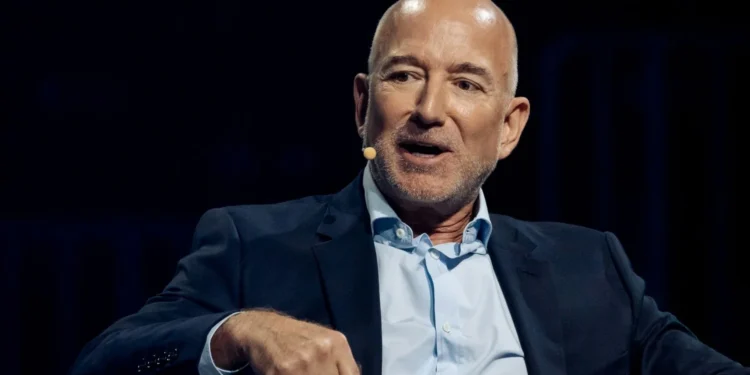Jeff Bezos is stepping back into an operating role with the launch of Project Prometheus, a new artificial intelligence startup focused on transforming engineering and the physical economy. After years away from day-to-day leadership following his exit as Amazon’s CEO, this marks a significant return to the trenches for one of the world’s most influential founders.
A Bold Move Back Into Leadership

Bezos will serve as co-CEO, sharing the role with Vik Bajaj, a scientist and former executive at Google X and Verily. The company is designed around a clear mission: using advanced AI to reshape industries such as aerospace, automotive manufacturing, and complex industrial engineering.
The move signals Bezos’s renewed interest in hands-on innovation, not just investment. It is one of the few instances since 2021 where he has taken a direct operational position.
A Startup Built With Scale in Mind
Reports indicate that Project Prometheus has already raised more than $6 billion, setting it on a trajectory usually reserved for late-stage companies rather than new ventures. The startup has quietly assembled a team of nearly 100 researchers and engineers, many of whom come from leading AI labs.
The scale of the funding and early team formation suggests that the company intends to compete at the highest tier of AI development, particularly in areas that require heavy computation, scientific depth and long-term R&D cycles.
A Focus on the Physical Economy
Project Prometheus is positioned around a timely concept: using AI to accelerate innovation in sectors that still rely on traditional engineering processes. The physical economy has lagged behind software in terms of automation and predictive intelligence.
The startup aims to close that gap. By applying AI to design, simulation and optimisation, the company could influence not just tech, but energy, logistics and industrial production across global markets.
Implications for Amazon and the Industry
Bezos’s return to operational leadership raises questions about how this will affect Amazon, his investment portfolio, and the competitive landscape of AI. While Project Prometheus operates independently, its ambitions overlap with areas that Amazon itself has been investing in, including robotics, logistics and cloud-scale AI infrastructure.
For the wider market, the entry of a Bezos-led deep-tech startup is likely to intensify competition and attract more capital into engineering-focused AI.
What This Signals About the Next Wave of AI
His involvement reinforces a broader shift in the sector: AI is moving beyond consumer apps and chat interfaces toward heavy industry, scientific discovery and real-world systems. Companies that can combine scientific rigour with vast capital and strong leadership will shape the next decade of innovation.
Project Prometheus fits that mould, ambitious, well-funded and backed by one of the most influential builders of the digital age.













